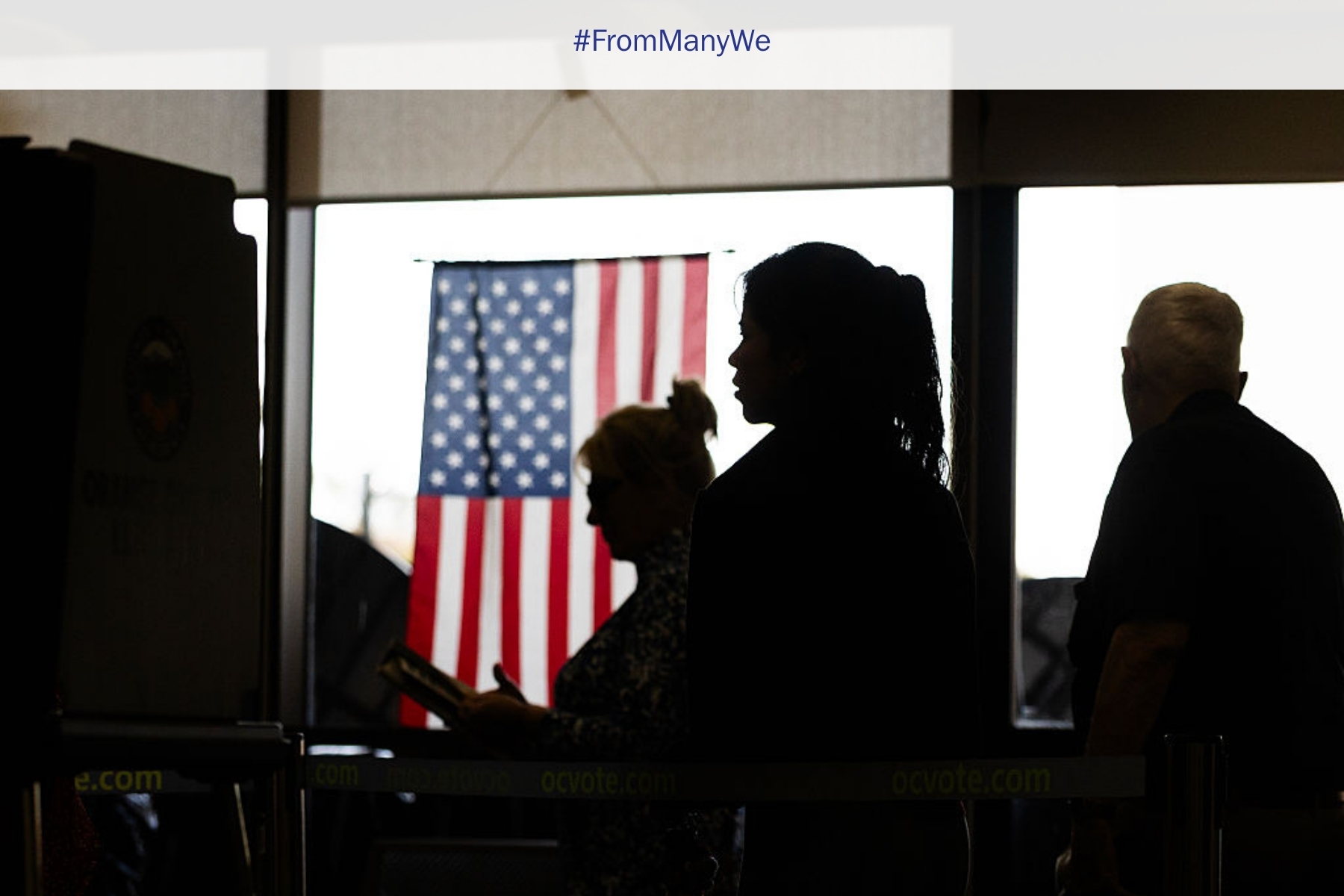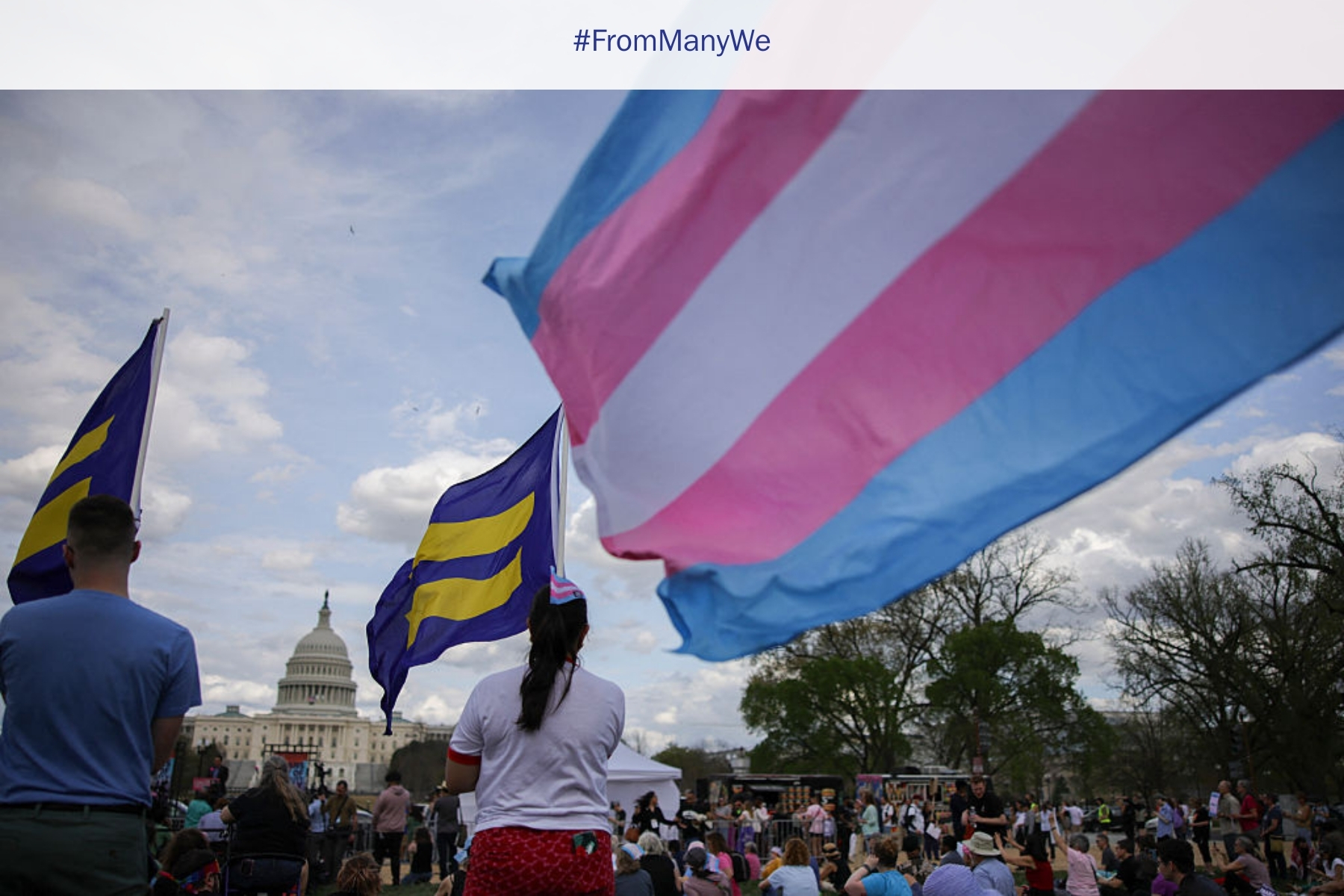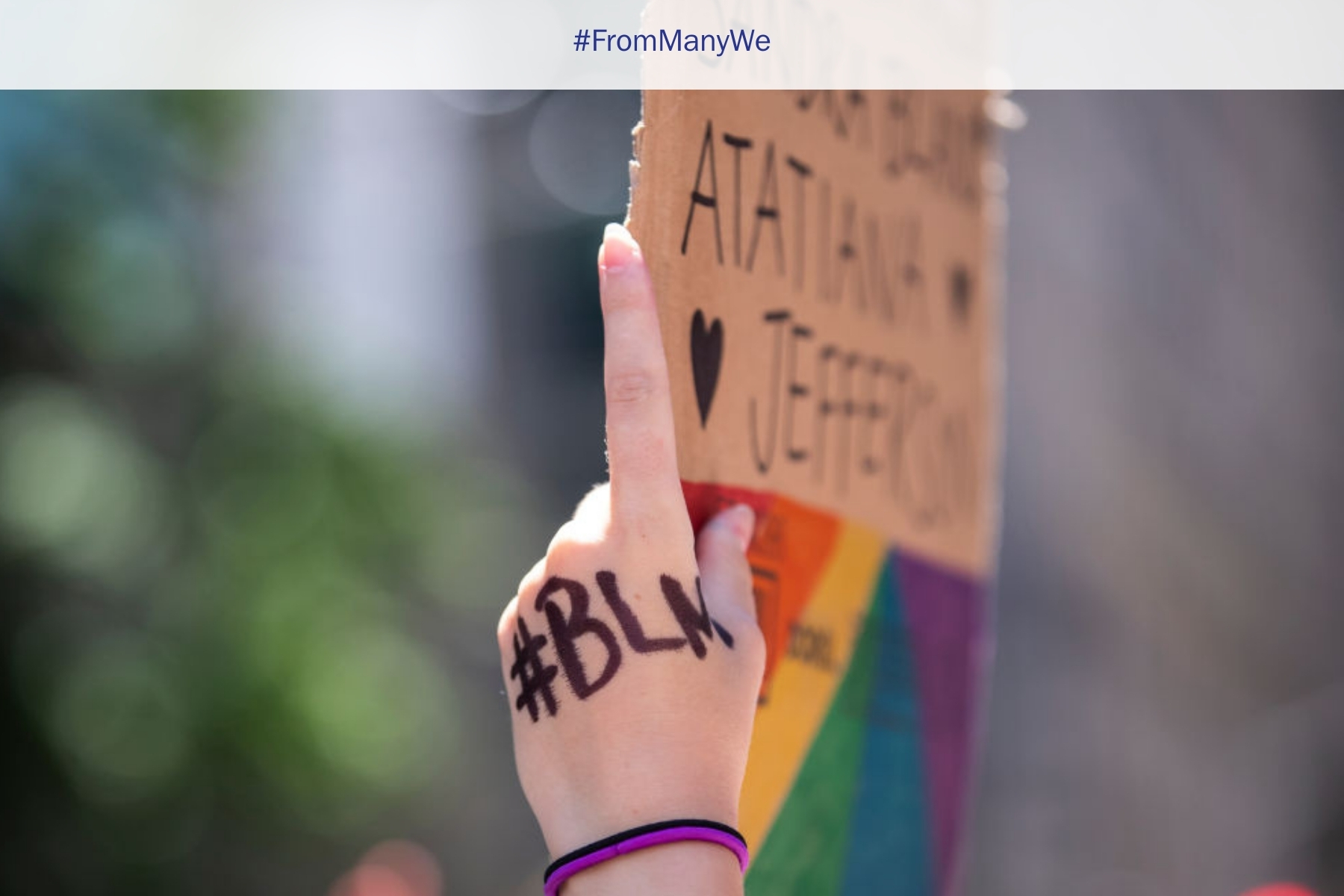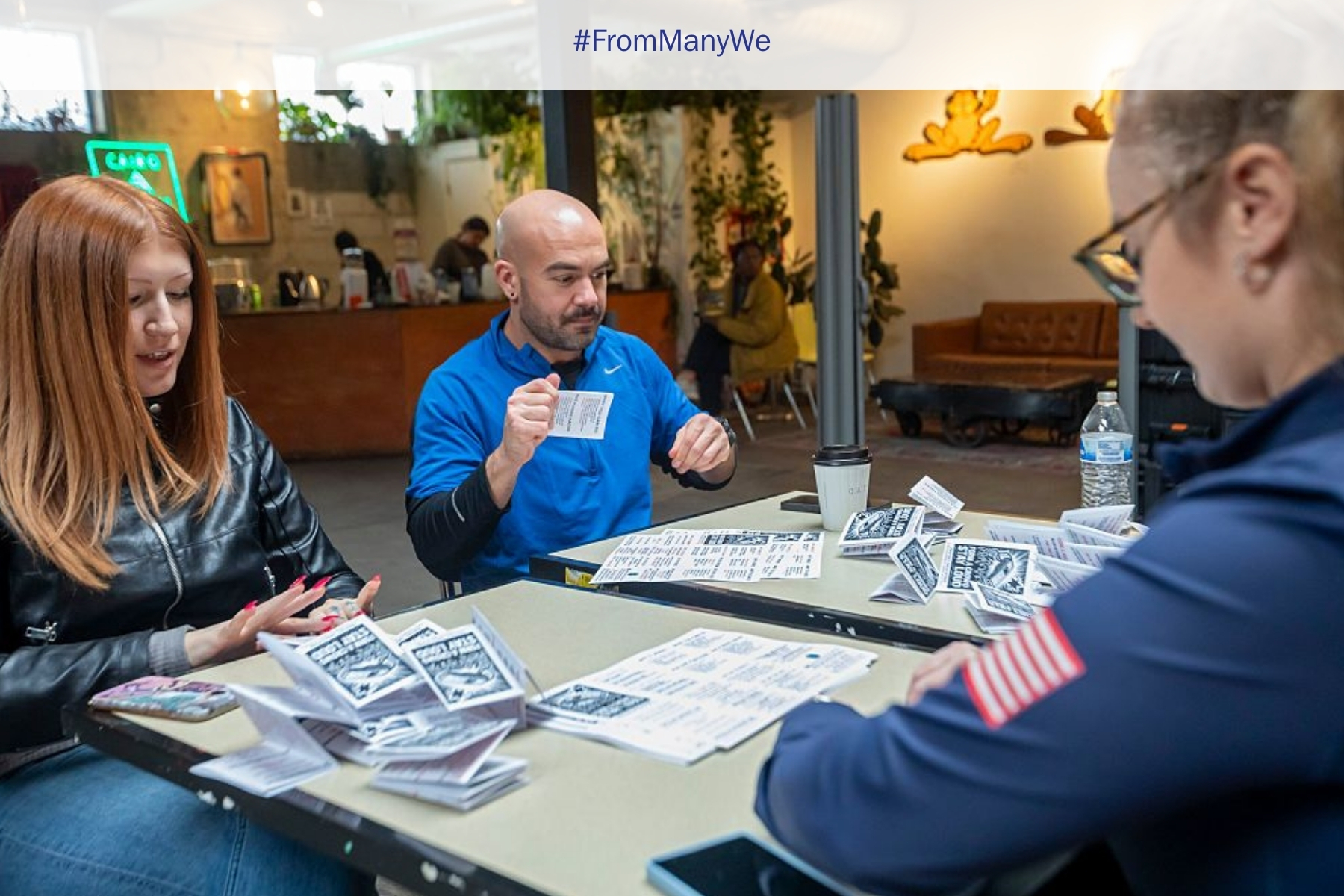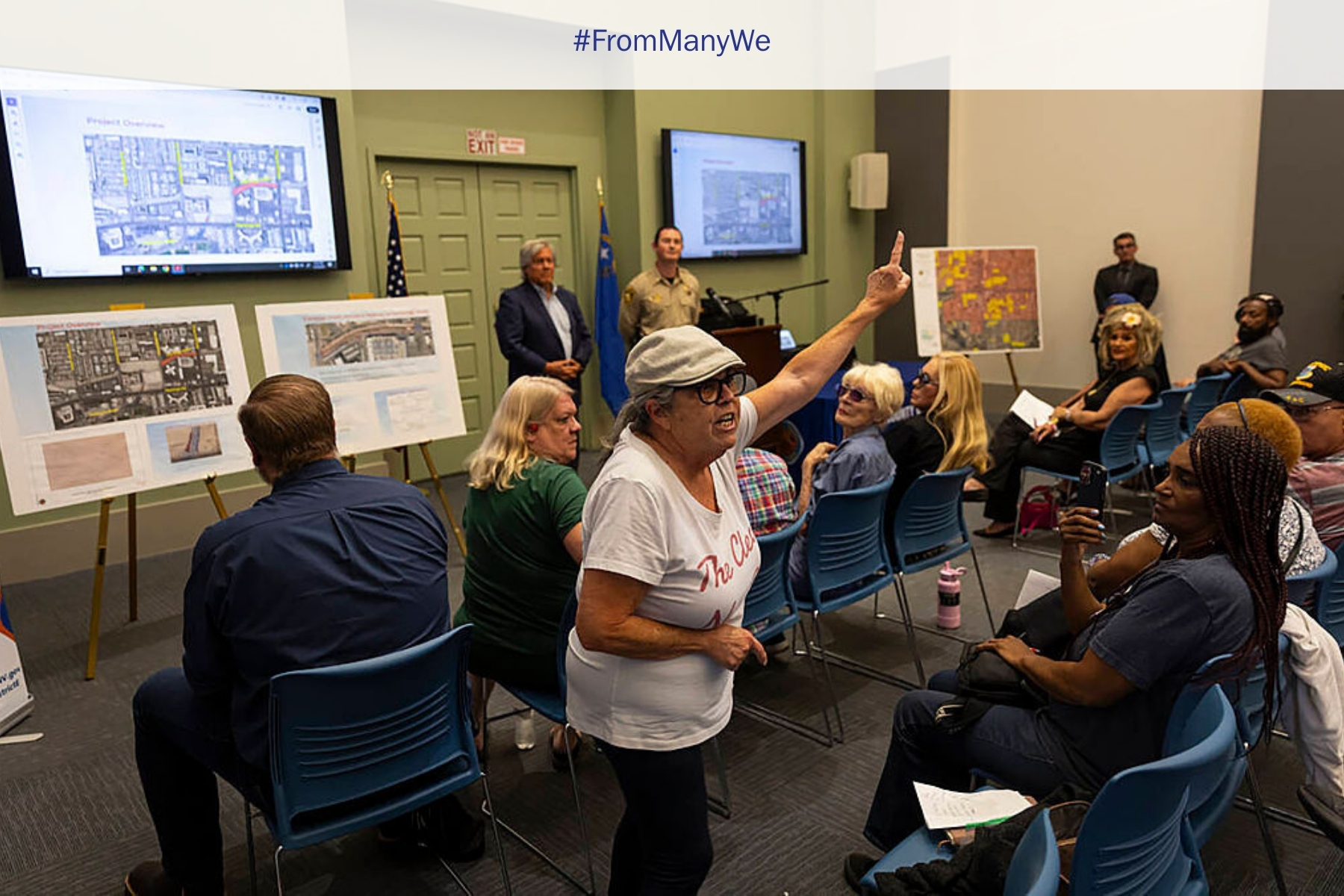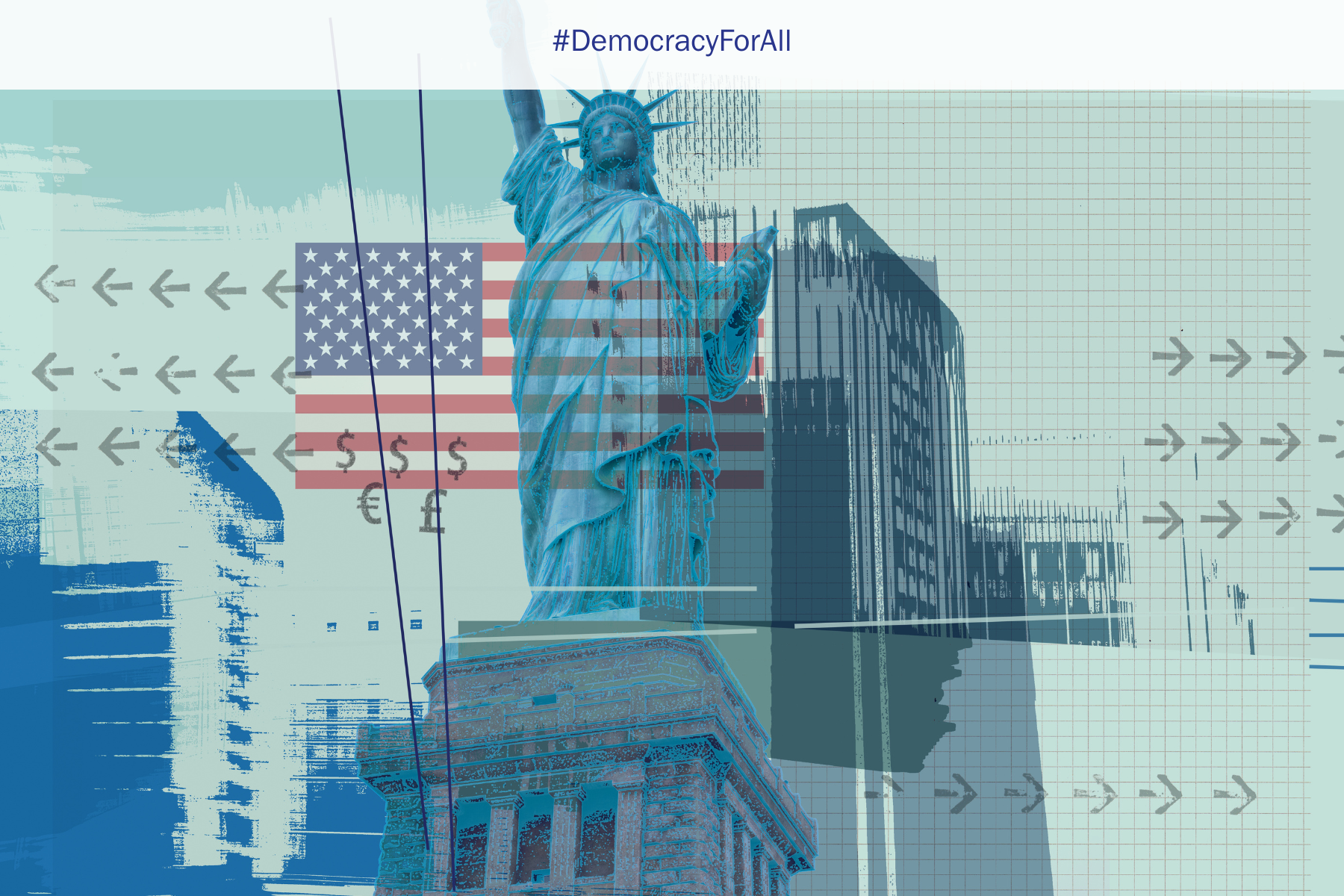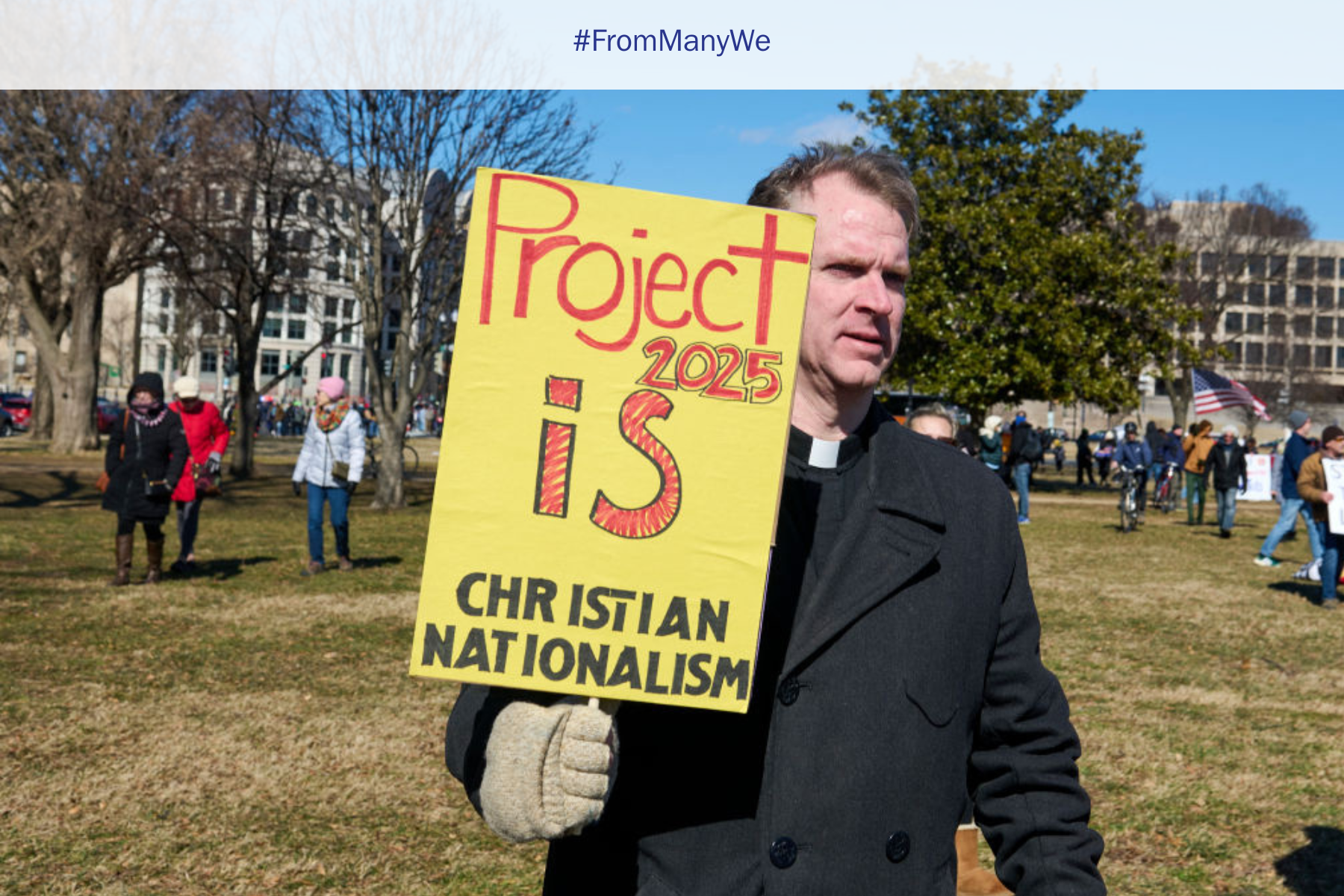Too Far, Too Fast? A Conversation with Christine Todd Whitman
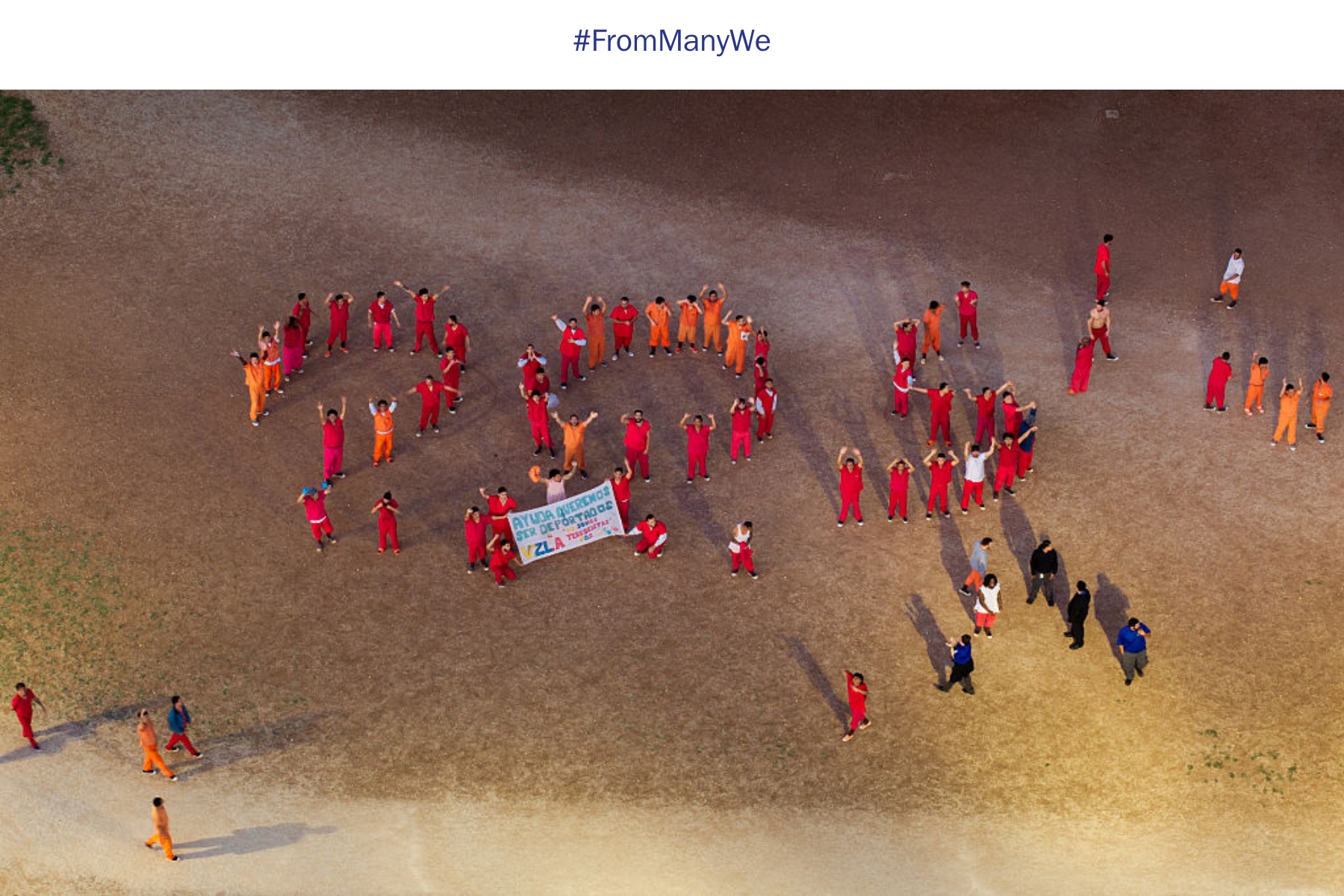
Former New Jersey Governor and Kettering Foundation Senior Fellow Christine Todd Whitman and other Republicans recently filed an amicus brief, along with the Democracy Defenders Fund, with the US Supreme Court in the case of J.G.G. et al. v. Donald J. Trump. The brief opposes the administration’s use of the Alien Enemies Act to deport undocumented immigrants. Whitman sat down with Maura Casey, a former editorial writer for The New York Times and writer for the Kettering Foundation, to discuss the Trump administration’s overreach and signs of push-back. The following is lightly edited based on transcripts of their conversation.
Maura Casey: What worries you the most about the current administration?
Christine Todd Whitman: That’s easy. It’s abiding by the Constitution and the rule of law. The Constitution is an “inconvenient” document, and [President Donald] Trump doesn’t seem to think it applies to him. And apparently neither do his acolytes. It’s really worrying. Many of our guardrails up to now have been kind of common sense, not laws. We’ve just depended on people to observe certain behaviors and certain ways of governing. But now that has blown up. Now we have to rely on the courts. They’re our last best hope.
The lower courts seem as if they’re beginning to understand the magnitude of what this administration wants to accomplish in upsetting our democracy. So they’re starting to push back. I’m keeping my fingers crossed that the Supreme Court gets to that place too.
Casey: But what can we expect of the Supreme Court in light of last year’s decision in Trump v. United States, which gave presidents broad immunity for their actions?
Whitman: That increased the power of the presidency beyond what most of us imagined. One of my biggest disappointments is [Justice] Samuel Alito. I am ashamed that I introduced him at his confirmation hearing. The Bush administration asked me to do it. He was from New Jersey. And he had actually made a decision on abortion that went contrary to his personal beliefs, clearly. That’s all I ever asked, really, of judges and justices when I appointed them. I wanted them to set aside personal beliefs and judge a case based on the merits and the facts. So I thought he would do that. Clearly, he has not.
Casey: Has the administration gone too far, even for his supporters?
Whitman: I think the movement is cooling. Not the real MAGA people, they will never change. But you’re seeing on the periphery more and more people saying, “Look, I want change, but not like this. This is going too far, too fast.”
The Trump administration ignored due process with regard to shipping people to El Salvador. Now they are sending arrestees to Libya [and other overseas countries]. It is just mind-boggling. But it does not seem as if there are enough people who are saying, “Wait a minute, that’s just a bridge too far.”
Casey: When do you think this started? How did we get here?
Whitman: I blame [former Speaker of the House] Newt Gingrich for most of what we’re seeing happening now.
Previously, the freshman class in Congress always went through their orientation together. Republicans and Democrats got to know one another. He’s the one who stopped that.
He’s the one who introduced some of the harshest language on how they were supposed to speak and talk about the other side, with the Democrats being evil. He really did start us down this path of hyper partisanship.
Casey: Yet could there be a Donald Trump without Fox News?
Whitman: [Now,] everybody is part of the media and everybody just goes to their particular bloggers that they like. And now we are handing Voice of America to a far-right conspiracy theorist [who has pledged to platform content from One America News]. It really bothers me. The administration is giving up all of our soft power.
I’m on the board of the World Food Program. We’re struggling now to fill the gaps and figure out how much money [the administration] is going to take away from feeding people around the world. When people are hungry and starving that’s destabilizing to these countries. If we walk away, guess who walks in? Russia and China. And they’re not our friends.
Casey: You wrote an op-ed recently about the EPA, which you ran under President George W. Bush. What might the administration do to the agency?
Whitman: I worry about the damage of this administration’s actions and whether we will be able to get back to wherever we were previously without a lot of trouble. It’s going to take a lot. A lot of the scientists are going overseas. You’re not going to get them back overnight, if at all.
Casey: How’s the Forward Party going? I’ve read with interest about how you cofounded it (along with Andrew Yang) as a new political party.
Whitman: The states all have different ways of identifying parties, but we’re recognized in 15 states now. By 2028, we want to be on the ballot in 35 states so we can qualify with the Federal Elections Commission as a national party. Running for president isn’t the goal, but it’s building a party from the grassroots up, starting at the bottom.
We have a pledge, which is pretty basic. Candidates have to swear to uphold the Constitution, respect the rule of law, work with anyone to solve problems, create a safe space to discuss controversial issues, ensure that anyone who has a legal right to vote gets to vote. And that’s based on principles of dignity, of diversity, and democracy.
The interesting thing is we’re getting as many Democrats as Republicans. There are Democrats that are not happy with the way the Democratic Party seems to be going and so they are coming to us. Obviously, we do get a lot of Republicans who’ve just said, “This just is not my party and I can’t support this.”
Casey: One big problem is money in politics. Trump is accumulating millions.
Whitman: Billions. He’s making billions. The whole family is.
Casey: How do we fix the problem of private money being poured into politics and political campaigns?
Whitman: Well, it is at the state level for state offices. States can put a cap on spending. For instance, we have matching funds in New Jersey for the gubernatorial race.
When I ran against US Senator Bill Bradley, he had $12 million on hand and I had less than $1 million. He only beat me by three percentage points. So it’s not everything.
If you have the ability to get on the internet and use technology, that doesn’t cost as much. If you get an influencer or two to support you, that can get you a lot of support without a lot of money.
Casey: I sense a lot of anger in many who belong to the MAGA movement. Do you think that to some degree, they have a point?
Whitman: I agree that politics has not been responsive.
Casey: How can people in politics listen better?
Whitman: When Newt Gingrich started to make Congress so partisan, Congress stopped getting things done and started looking at every issue through the partisan political prism, not the policy prism. They weren’t trying to solve problems. They were looking for other issues that would give them some extra votes.
And so people were frustrated because Congress wasn’t working for them. And they had a right to be. But then they went for a disruptor, Donald Trump. And he’s very good at it. Why people believe him, I don’t know, because if you look at his track record, he put more small businesses out of business in Atlantic City than anybody I can think of. And his casino went broke. How does a casino go broke? Every other casino in Atlantic City was making money.
Casey: Shouldn’t the emoluments clause of the Constitution prevent this behavior?
Whitman: Nobody is enforcing it, and that’s a problem. The Supreme Court decision [Trump v. The United States] said the president had all this power, that he could do lots of things we never thought he could do. He is upending what we thought was normal behavior for a president. You’re not supposed to be making money off being president. He is making billions.
Casey: Do people understand how inappropriate this is according to our norms, rules, and our Constitution?
Whitman: Right. When people say, “Oh, Project 2025, he didn’t mean that.” Trump may deny it, [he denied knowing about it during the 2024 campaign] but he has put all the people who wrote it into office. And they are following the playbook step by step.
Casey: Why do you suppose people believe him?
Whitman: We don’t admit that we are wrong very well or very often as Americans. You would have to admit, “I was wrong.” It’s very hard for people to do this.
From Many, We is a Charles F. Kettering Foundation blog series that highlights the insights of thought leaders dedicated to the idea of inclusive democracy. Queries may be directed to fmw@kettering.org.
The views and opinions expressed by contributors to our digital communications are made independent of their affiliation with the Charles F. Kettering Foundation and without the foundation’s warranty of accuracy, authenticity, or completeness. Such statements do not reflect the views and opinions of the foundation which hereby disclaims liability to any party for direct, indirect, implied, punitive, special, incidental, or other consequential damages that may arise in connection with statements made by a contributor during their association with the foundation or independently.
